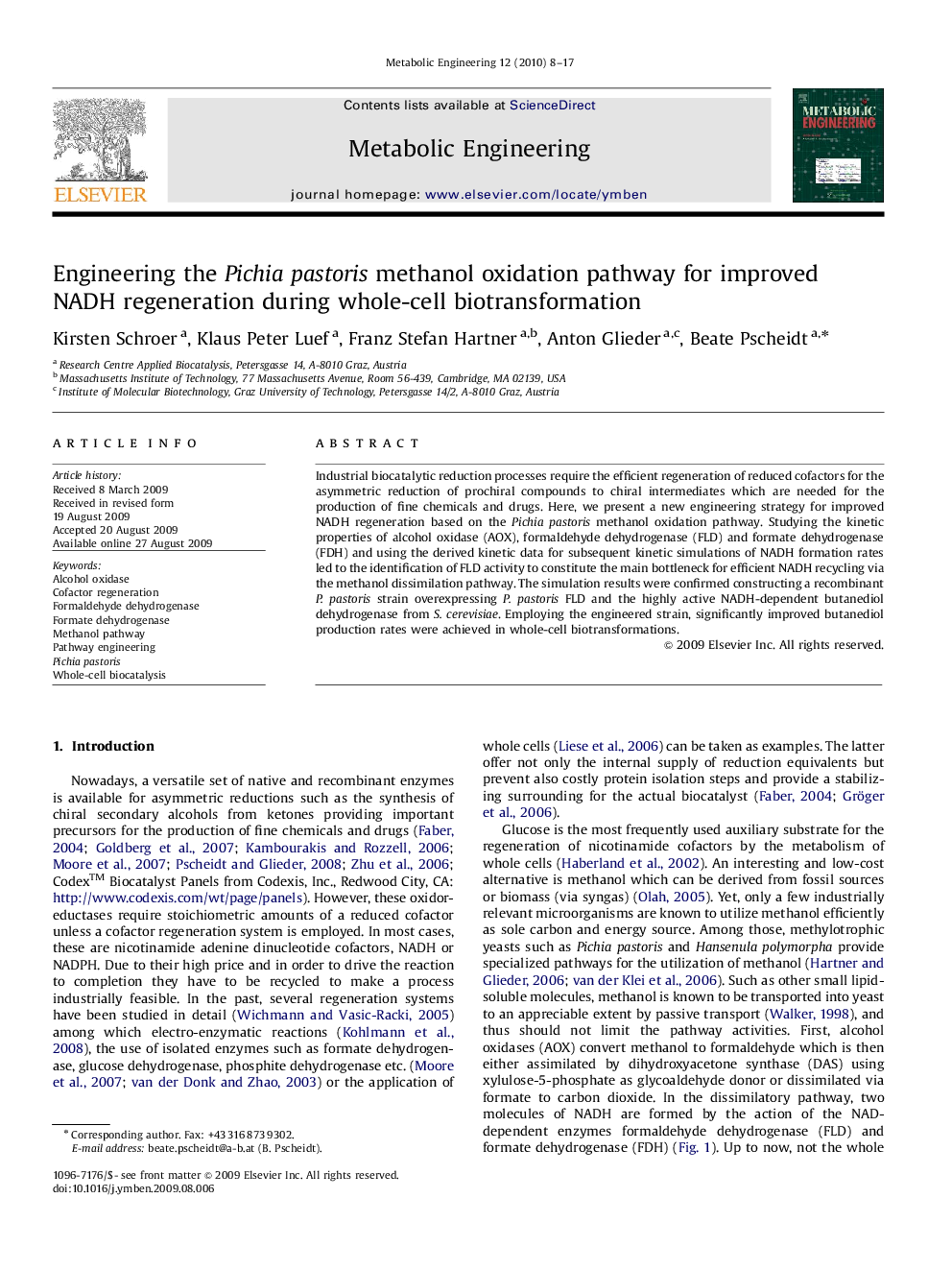| Article ID | Journal | Published Year | Pages | File Type |
|---|---|---|---|---|
| 31756 | Metabolic Engineering | 2010 | 10 Pages |
Industrial biocatalytic reduction processes require the efficient regeneration of reduced cofactors for the asymmetric reduction of prochiral compounds to chiral intermediates which are needed for the production of fine chemicals and drugs. Here, we present a new engineering strategy for improved NADH regeneration based on the Pichia pastoris methanol oxidation pathway. Studying the kinetic properties of alcohol oxidase (AOX), formaldehyde dehydrogenase (FLD) and formate dehydrogenase (FDH) and using the derived kinetic data for subsequent kinetic simulations of NADH formation rates led to the identification of FLD activity to constitute the main bottleneck for efficient NADH recycling via the methanol dissimilation pathway. The simulation results were confirmed constructing a recombinant P. pastoris strain overexpressing P. pastoris FLD and the highly active NADH-dependent butanediol dehydrogenase from S. cerevisiae. Employing the engineered strain, significantly improved butanediol production rates were achieved in whole-cell biotransformations.
